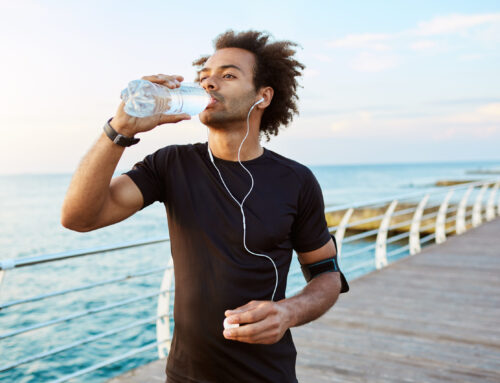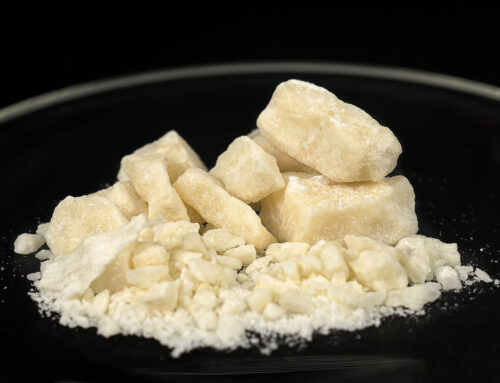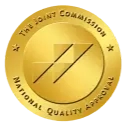Drug and Alcohol Detox Center
Whether you’re meeting new friends for the first time or giving a presentation in front of a group at work, it’s normal to feel nervous or uncomfortable every once in a while. However, those who suffer from Social Anxiety Disorder, or SAD, experience extreme feelings of self-consciousness, fear, and anxiety all the time. Unfortunately, this can make even ordinary social situations both difficult and painful.
To help ease the discomfort, many turn to alcohol as a means of coping. This is likely why research shows that those who suffer from Social Anxiety Disorder are at higher risk of developing a problem with alcohol abuse. Although a SAD diagnosis usually occurs first, there’s a lot to think about to understand the relationship between SAD and alcohol abuse. Here’s what to know about the link between SAD and alcohol abuse:

What is Social Anxiety Disorder?
Social anxiety disorder, or SAD, is a condition in which someone experiences crippling anxiety and fear of embarrassment in social situations. SAD is one of the most common disorders in the United States, affecting approximately 15 million adults today.
If left untreated, social anxiety disorder can severely impact every aspect of an individual’s life. Those with unchecked social anxiety disorder often experience low self-esteem, negative self-talk, poor social skills, and even suicidal thoughts. Other common symptoms include extreme fear or preoccupation with social events, nausea around other people, difficulty speaking or making eye contact with other people, rapid heartbeat, and extreme self-awareness and discomfort in social situations.
How Are Social Anxiety and Alcohol Abuse Related?
Social anxiety is a challenging disorder to navigate, and because of this, many people turn to alcohol as a way to self-medicate. In fact, research shows that approximately 20 percent of those with social anxiety disorder ultimately develop a dependence on alcohol. This is because alcohol can relax the drinker, helping to mitigate the tension and stress that often come with social anxiety disorder. However, drinking alcohol can quickly spiral into an addiction, causing even greater problems than the social anxiety disorder causes alone. While alcohol might make you feel more comfortable in social situations, it does nothing to help you improve your ability to mitigate social situations.
Additionally, the relief that alcohol provides from the symptoms of social anxiety disorder is only temporary; often, symptoms return (often exacerbated) by the next day. Most individuals are diagnosed with a social anxiety disorder about 10 years before developing a significant problem with alcohol.
How to Tell if You Are Struggling With Alcohol Abuse
Although using alcohol to mitigate social anxiety disorder can start out as a benign situation, it can quickly spiral into a problem that is outside of your control. If you’re wondering if you’re struggling with alcoholism in conjunction with your social anxiety disorder diagnosis, here are some guidelines that may indicate it’s time to get help:
- You need a drink every morning.
- Family members, friends, and others you know have expressed concern about your drinking habits.
- On average, you drink alcohol at least 4 times per week.
- You have at least 5 drinks in one day.
If any or all of these symptoms describe your relationship with alcohol, you may be suffering from alcohol abuse in conjunction with your social anxiety disorder.
How to Treat Social Anxiety and Alcohol Abuse
Depending on age and other factors, treatment options for those affected by social anxiety disorder and alcohol abuse are different from treatment options for those only diagnosed with social anxiety disorder. For example, while those who don’t have a full alcohol addiction can likely receive standard social anxiety disorder treatment, individuals diagnosed with alcoholism need treatment that is geared toward both their social anxiety disorder and alcoholism in order to have the best chance at recovery. Medical professionals like the team at Atlanta Detox Center can help you develop a unique treatment plan designed to fit your needs.
It’s also important to be aware that not all medications used to treat social anxiety disorder are approved for individuals who are struggling with alcoholism. This is why it’s so important, to be honest with your healthcare provider about your alcoholism and how much you typically drink. It’s also important to carefully follow the guidelines for your medication. Here’s a look at some of the common medications that are used to treat individuals with social anxiety disorder, but that should not be used to treat patients who also struggle with alcohol abuse:
- Benzodiazepines: Although benzodiazepines are used to treat social anxiety disorder when combined with alcohol, they can cause respiratory suppression. Additionally, benzodiazepines are not recommended for those who are predisposed toward addiction because they can be habit-forming.
- Monoamine oxidase inhibitors (MAOIs): MAOIs, like benzodiazepines, can interact with alcohol to produce potentially dangerous effects. MAOIs are not recommended for those who drink.
Although several of the most common medications for treating social anxiety disorder are not recommended for those who also suffer from alcohol abuse, there are other treatment options available. Here’s an example of a medication that can help treat social anxiety disorder and alcohol abuse:
- Selective serotonin reuptake inhibitors (SSRIs): SSRIs are commonly used to treat depression and anxiety, and are widely considered to be the best treatment option for those who suffer from both social anxiety disorder and alcoholism. There are two reasons for this. First, SSRIs not only target social anxiety disorder but have also been shown to reduce the tendency to consume alcohol as a self-medication technique. Additionally, unlike many other medications, SSRIs are not habit-forming, making them an ideal option for those who have a tendency toward addiction.
Why Is It Important to Treat Both Social Anxiety Disorder and Alcohol Abuse?
Besides the risks that come from medications that only target social anxiety disorder, another reason it’s so important to treat these conditions together is because it reduces the risk of relapse. Individuals who only receive treatment for their alcohol problem and not social anxiety disorder are likely to relapse from resorting to self-medicating again. Research shows that those who are treated for alcoholism who also have social anxiety disorder are more likely to relapse than those who only suffer from alcoholism.
Reach Out to Atlanta Detox Center Today
Understanding the relationship between social anxiety disorder and alcohol abuse is essential for correctly treating patients who are suffering from these conditions and helping them get back on the right track. The earlier individuals receive treatment, the greater the chances of long-term recovery.
If you or someone you love is struggling with alcohol abuse and social anxiety disorder, know that you aren’t alone. Although it’s normal to feel isolated, there are resources and support that can help you. Atlanta Detox Center offers treatment, resources, and support to the Atlanta area, and our medical professionals can work with you to create a treatment plan that will make it possible for you to succeed. Reach out to Atlanta Detox Center to start your path toward recovery, healing, and a brighter future today.







